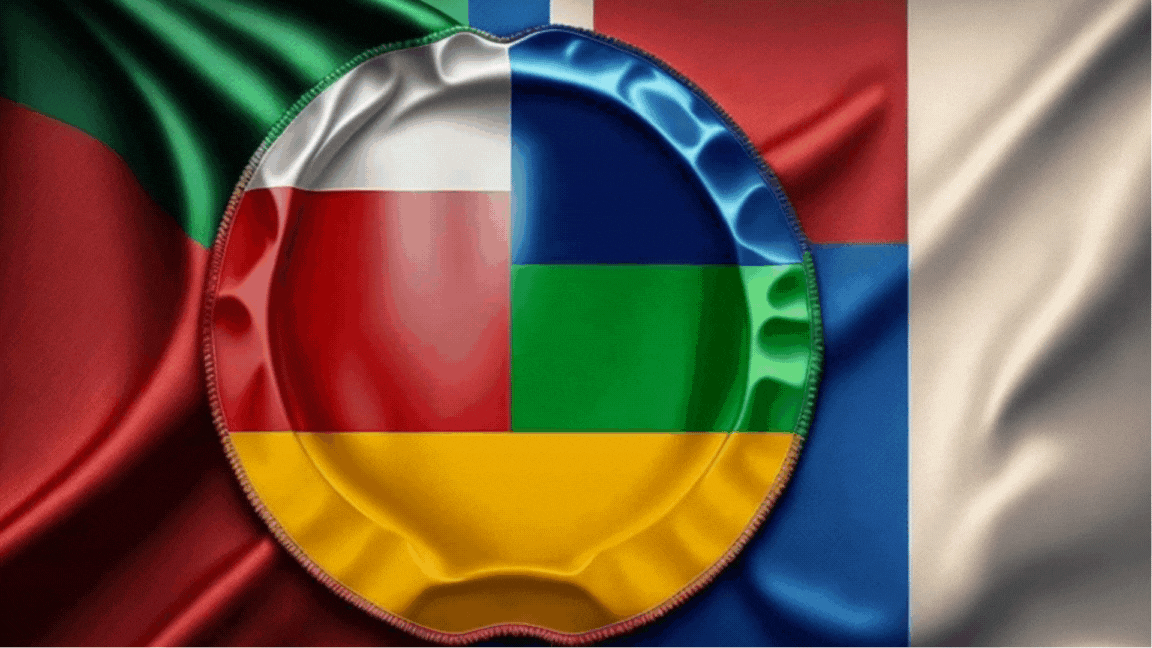
The White House does not officially recognize him as president, but its officials have settled at the negotiating table with him to have a say in the Venezuelan future. I don't know if in economic matters the strategy that the Bolivarian leader has assumed will end well—it is risky, especially in that dimension—, but politically he has won the game against Biden, who anyway could be more interested in influencing the oil market than in sponsoring the whining, begging and anti-national Venezuelan opposition leadership. And I speak of the match between Nicolás Maduro and Pennsylvania Avenue to make it clear that, in my opinion, it is the only one being disputed, because the opposition is acephalous, so much so that it does not even know how to interpret the laws or the agreements it signs. The heir of Hugo Chávez, a target of derision inside and outside for his erratic declarations, in this concrete political realm ends up shaking his internal rivals at will; from all points of view—including the communicational one—we could say that he abuses them. The Miraflores Palace repeats the same play over and over again, and, for now, it always gets away with it.
Maduro unhinges the opposition and Washington
"Today the Barbados agreements are mortally wounded, I declare them in intensive care, they were stabbed, they were kicked", Maduro said this week, referring to allegations of conspiracies to assassinate him that were allegedly hatched between the middle of last year and this January. More than thirty people are detained among civilians and military for the alleged events, according to information shared on Monday by the head of the Public Prosecutor's Office, pointing to opposition figures as the masterminds. Of course, the mere veracity of the allegations is under discussion, but in any case, the Government has stated that it will send the evidence to the opposition delegation that signed the Barbados agreements, in which a road map was established to unblock the call for general elections, tentatively scheduled for the second semester of this year. Under this commitment, the US Treasury Department considerably relaxed the sanctions imposed against Venezuela by the Trump administration, which, according to the Congressional Research Service itself, "exacerbated an ongoing economic and humanitarian crisis" where the local government does not cease to bear a huge responsibility for its mismanagement of the economy, torpedoed by an overflowing corruption as well.
 Venezuelan Attorney General had a very active week (source of the image).
Venezuelan Attorney General had a very active week (source of the image).Jorge Rodríguez, the eloquent head of the Venezuelan Parliament who also serves as the Government's chief negotiator, invited Norway—facilitator of the dialogue process—to verify the accusations. From his perspective, the alleged assassination attempts break with what was agreed upon, and indeed they do if the evidence is convincing and irrefutable. But look, this was only one of the fronts on which Chavismo attacked during the week. The most critical for the Venezuelan democratic development was the ratification by the Supreme Court of Justice of a disputed disqualification of María Corina Machado, the intended united opposition candidate for the presidency. This was another contentious point included in the Barbados agreements, which only Maduro's team interpreted clearly. Nowhere did the Venezuelan Government commit itself to admit a not-so-innocent Machado as a candidate, who has openly supported external interference—demanding the imposition of sanctions and even an international humanitarian intervention—in matters that only concern Venezuelans, regardless of the evaluation of the context and the nature of the Government.
The opposition goes down after Miraflores' legal tripwire
In addition, the primaries that would have qualified her as the opposition candidate did not follow the rules outlined in the Constitution, something that chavismo took charge of placing as a closure to all the points of the agreement. The opposition anchors, for example, in an article of the Magna Carta that suggests that for Machado to be disqualified there must be a standing sentence against her, but they omit that the same article—number 227—exposes that potential candidates must also comply "with the other requirements established in (the) Constitution", which includes the authority of the Comptroller (see article 105 of this legislation) to apply the disqualification that—whether fair or not in its interior—weighs on her. "Maduro and his criminal system have chosen the worst path for them: fraudulent elections", she denounced after learning of the decision of the highest judicial authority.
 The situation is getting more complicated for María Corina Machado. Her political future and that of Venezuela is unknown (source of the image).
The situation is getting more complicated for María Corina Machado. Her political future and that of Venezuela is unknown (source of the image).From Foggy Bottom, the Blinken team has announced a review of the sanctions policy based on everything that happened during the week, labeling the measure against Machado as "incongruent" with the commitment of Caracas to hold competitive elections, although that potential dynamic is not synonymous with blessing an action that erodes the constitutional order. "There was never any talk (...) about any candidate in particular for the qualification" nor that those related to "acts of corruption, crimes, calls for coups d'états, blockades and sanctions" would be pardoned, said an intelligent Rodríguez, backed up, I repeat, by the letter of the Barbados Agreements. He astutely suggested the United States let Venezuelans solve their problems without interfering, thus placing Biden at a critical crossroads for the future of the land of Bolívar.
And this is all for our report today. I have referenced the sources dynamically in the text, and remember you can learn how and where to follow the LATAM trail news by reading my work here. Have a nice day.

